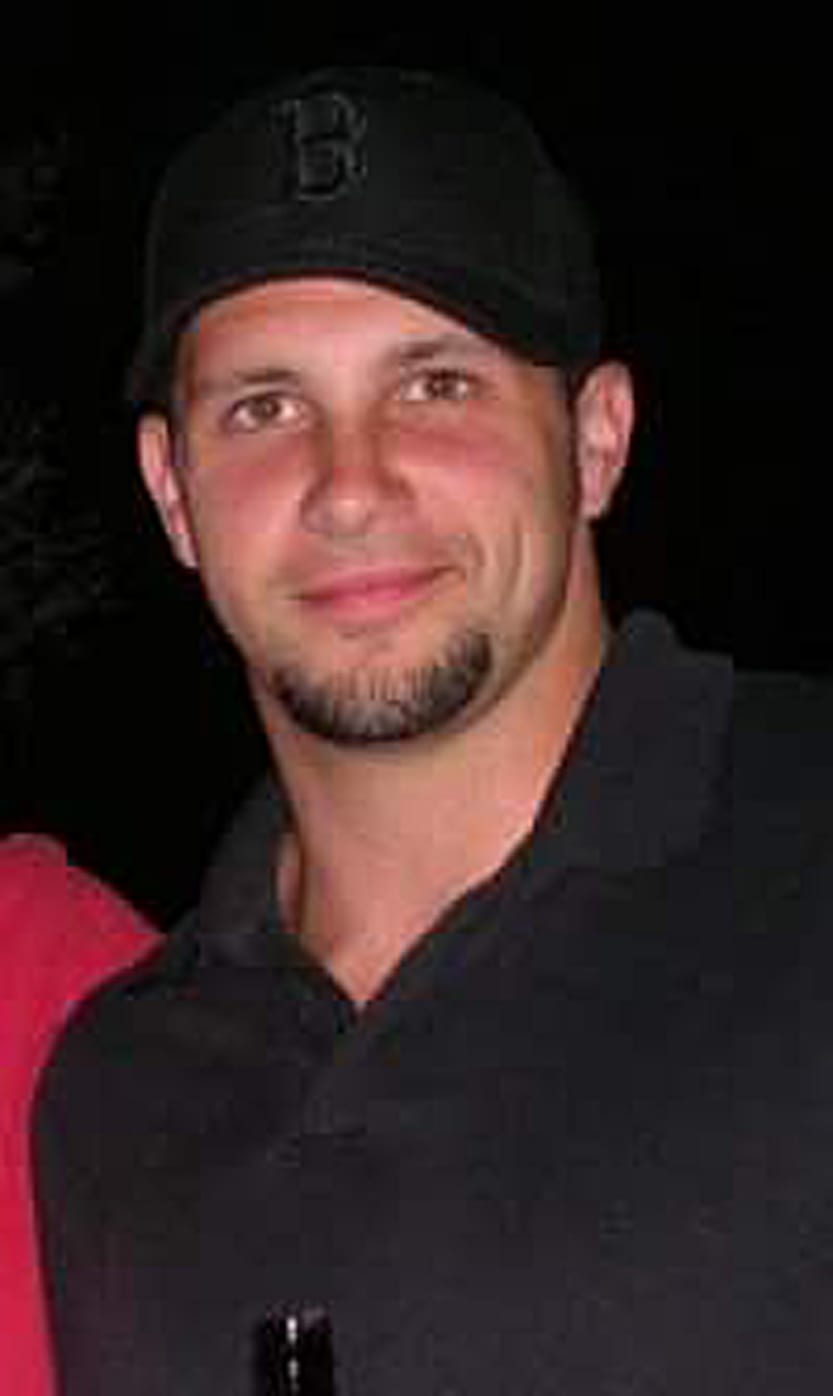This is the story of Christopher John Genovese of Woburn — Geno to those who knew him (though, paradoxically, his mother did not know his nickname while he was alive).
Geno loved life. He loved having the same name as a noted Mafioso, and his mom says he did a pretty mean impression of Marlon Brando’s “Don Corleone.”
He loved sports, and he excelled at them. He was so good in hockey that after playing for Governor’s Academy, he played at the collegiate level at Assumption.
Kate and Gary Genovese lived the life all hockey parents lived. They got up at ungodly hours to go to rinks — very often in face-numbing cold. They put many miles on their vehicles being there for their son. He, in turn, was one of their three main sources of joy (along with oldest daughter Jesse and middle son Dan).
This should have been the all-American family. And perhaps Geno Genovese might be one of those guys who leaves work at 5 p.m., puts on the pads at the local rink, and plays pickup. Perhaps he might have become a referee. Who knows. At age 30, life still has no limitations. You can be whoever you want to be.
Only Geno never got the chance. Other things took over. Monstrous things that changed an effervescent, enthusiastic boy into someone neither of his parents could recognize.
Geno became an addict.
Before we go on, it’s important to get one thing straight — not because it makes a difference in the long run. Once you cross that line and into the realm of ‘addict,” that’s the only thing that matters — both to the addicts and to the families forced to live with it.
In Geno’s case, this wasn’t something he set out to do. Too many people get this image, despite all evidence to the contrary, that addicts deserve their diseases because they made conscious choices to engage in the drugs that end up holding them hostage.
That is not always true. And it certainly wasn’t true in Geno’s case. Like many people, Geno Genovese got hurt playing high school sports. It’s such a familiar tale by now. It happened around here to Peabody’s Jeff Allison, and it has happened to so many others.
His first injury occurred playing football. Five more times between high school and college, he got hurt. Each injury required surgery, and each time he was given powerful pain-killing medication to cope with the discomfort.
Slowly, Geno became dependent on these drugs and eventually became a full-blown addict. Once that happened, it was a difference world, both of him and for his family.
“It really is a family disease,” said Kate Genovese, who has written a book called “Hat Tricks from Heaven,” which chronicles Geno’s life from birth to death. Hers is an unsparing look at the life of an addict. And among the many benefits you get from reading it is the realization that all statistics, in the end, are human beings who had childhoods, played the Cowardly Lion from the “Wizard of Oz” ‘in the grammar school play, had girlfriends, got jobs, and had interests and passions.
They take their wrong turns due to a myriad of reasons and circumstances, and those of us who have managed to escape such horrors can only say “there but for the grace of God go us.”
Geno was “a fun kid,” said his mother. “We had a good time with him. He had so many hockey tournaments, and we traveled so many places with him. He loved us. Nothing will change that.”
But, she said, “he couldn’t get better. It’s like having cancer, and you can’t get better.”
Kate and Gary Genovese encountered many of the problems that other families of addicts face.
“I’d love to somehow make enough money from this book to establish a recovery center,” Kate Genovese said. “One of the problems we had is that there weren’t enough sober houses when he was sick. We could not get a bed. He would be on the street, or in our house, when he was using. So this is one of my goals. We’d call these “Geno” houses.”
Like a lot of addicts, Geno kept the disease hidden from most people. Addicts tend to be good actors. It even took a long time for the problem to sink in with his family.
Addicts struggle mightily. You can delude yourself into thinking they’ve made enough progress to have turned the corner, but the truth is those corners don’t exist. Or if they do, all that lies ahead is more rough rode.
Geno was doing well up until the time he relapsed for the last time. Things were looking good. But Kate was in New Hampshire with friends and family when she got the call from her daughter. Geno was dead at age 30 from an accidental overdose. Her immediate reaction was to lie on her bed with a friend and say three decades of the Rosary.
“Why him?” she wanted to know. “Why didn’t this happen to the guy who sold him the drugs?”
All she knows now is that she wants it out there for the public to read how insidious this disease is.
“I want to put it out there that it is a disease,” she said. ” It can be helped, but it cannot be cured.”

